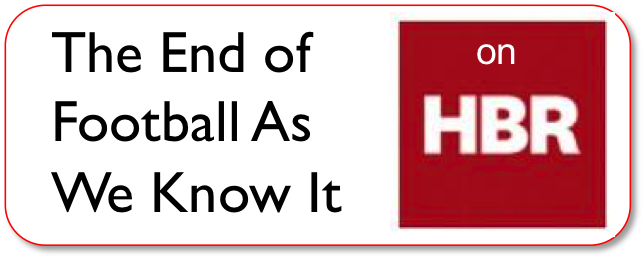 Facebook goes far beyond a social networking site. It has become the single best identity management service on the planet. Want to leave a comment on TechCrunch? You need to sign in with Facebook, not through LinkedIn or any professional presence. That may seem counterintuitive but the new Web works not on how we market ourselves, but how we’re marketed to. Giving you a platform isn’t about letting you speak, but collecting info to assist in marketing to you. Ouch.
Facebook goes far beyond a social networking site. It has become the single best identity management service on the planet. Want to leave a comment on TechCrunch? You need to sign in with Facebook, not through LinkedIn or any professional presence. That may seem counterintuitive but the new Web works not on how we market ourselves, but how we’re marketed to. Giving you a platform isn’t about letting you speak, but collecting info to assist in marketing to you. Ouch.
It was pointed out in a recent Forbes article (Hulu To Users: Connect Your Facebook Account Or No Social For You) that if you want to have a social presence on Hulu you now need to sign in through Facebook first. Why would Hulu take the risk of upsetting their non-Facebook customers? Because they recognize that outsourcing identity management to Facebook has much better returns than trying to build that critical information themselves, user-by-user. Facebook is their marketing database.
Acceleration
This will be an accelerating trend. Facebook is the undisputed social backbone of the Internet. That makes Facebook the best (and getting better) marketing database for the world and has more data on more people than anyone thought possible.
 Why does this matter? 100 years ago marketers advertised in a newspaper or magazine because, 1) they thought it had the right demographic that might be looking for the item they were selling, or, 2) the ad would be recalled in the right moment to affect a purchase. Television followed the identical pattern. Reaching a customer just once in a while was as good as it got. That massively inefficient model is being massively disrupted.
Why does this matter? 100 years ago marketers advertised in a newspaper or magazine because, 1) they thought it had the right demographic that might be looking for the item they were selling, or, 2) the ad would be recalled in the right moment to affect a purchase. Television followed the identical pattern. Reaching a customer just once in a while was as good as it got. That massively inefficient model is being massively disrupted.
Data, Big Data and Efficiency
New Marketing is about efficiency. Getting to an efficient response requires great data before an offer is made. That in turn means complexity needs to happen behind the scenes with heavy reliance on data analytics (Big Data) atop as much relevant data (like Facebook) as possible. The result is the right offer to the right person in the right moment for a decision.
This is the polar opposite of the traditional marketing message which relies upon simplicity and repetition and is directed most often at the wrong person at the wrong time and in the wrong context. Traditional marketing suffers from scarcity of complexity (data and analytics) and relies instead on massively prolific messaging: The jingle, the mascot, the tag line (“Where’s the beef?”). Pollute the public’s mind often and long enough and they’ll be compelled to buy your product.
There will still be a place for polluting the public’s mind, rest assured, but the one-way channels that support those messages (radio, television and newspapers) are going the way of the dinosaurs…and it accelerated as soon as the Web went mobile. It is only a matter of time before the bi-directional nature of the Internet takes over. Congratulations, Facebook, on figuring that out quite a while back.






 Solve for Interesting
Solve for Interesting Seth Godin Blog
Seth Godin Blog Jeremiah Owyang
Jeremiah Owyang IT Redux
IT Redux HBR Blog
HBR Blog Clay Shirky Blog
Clay Shirky Blog SocialMedia Today
SocialMedia Today Chris Dixon
Chris Dixon Brian Solis
Brian Solis Radar O'Reilly
Radar O'Reilly Chris Brogan
Chris Brogan The TIBCO Blog
The TIBCO Blog Venture Beat
Venture Beat Engadget
Engadget Wired
Wired Lifehacker
Lifehacker Mashable
Mashable The Verge
The Verge ARS Technica
ARS Technica GigaOM
GigaOM All Things D
All Things D TechCrunch
TechCrunch






Reblogged this on Fabless Labs.
Reblogged this on Fabless Labs.